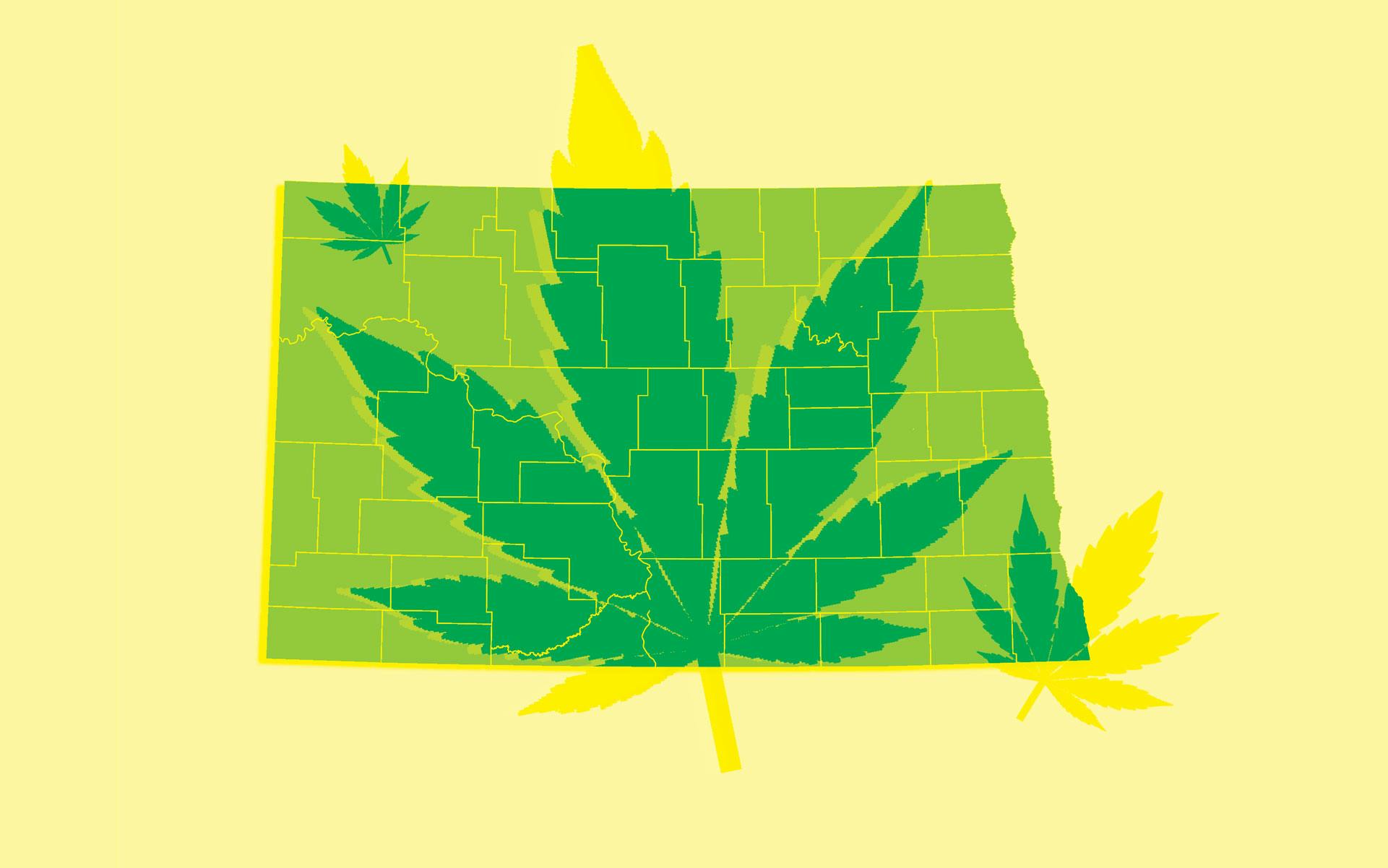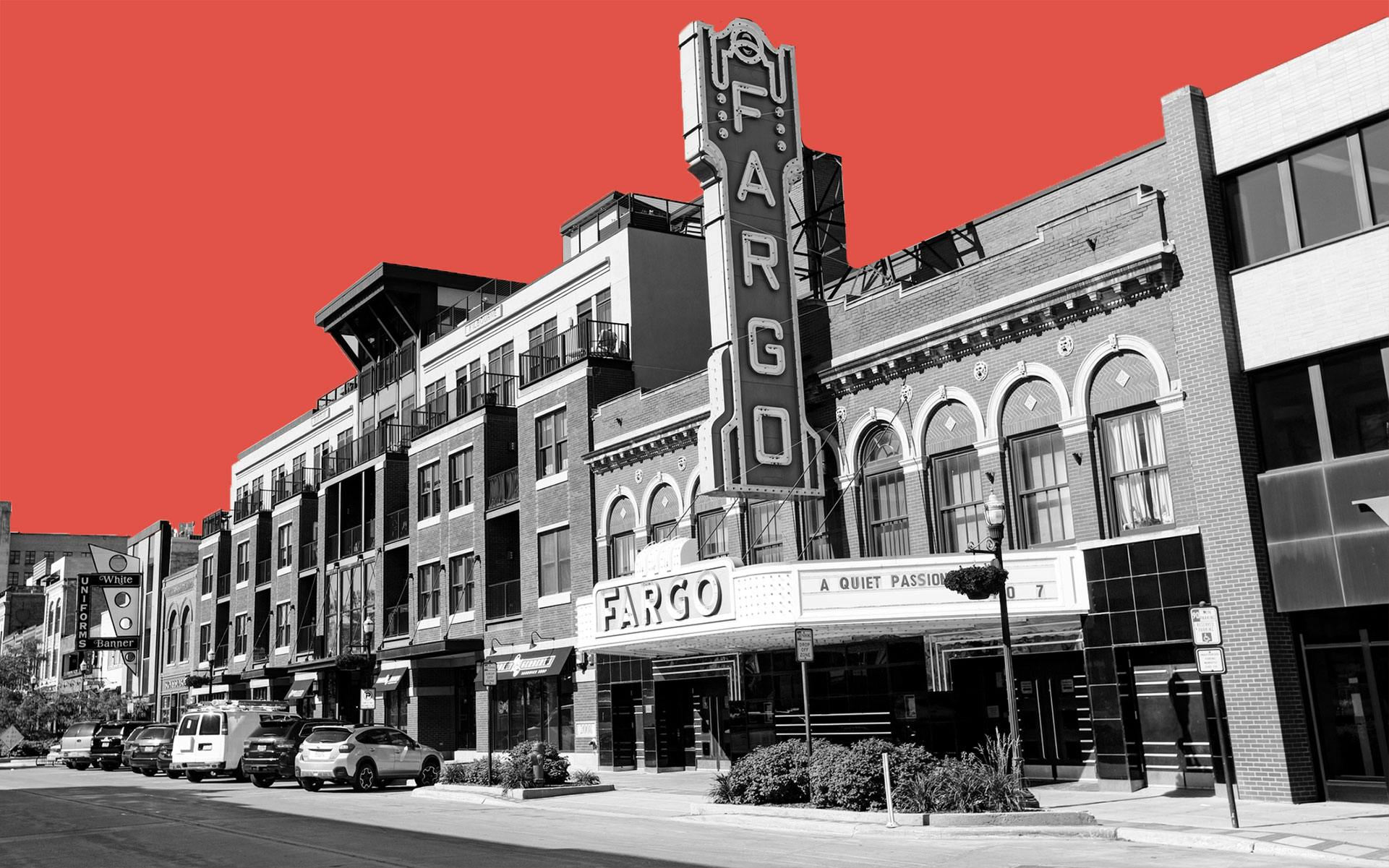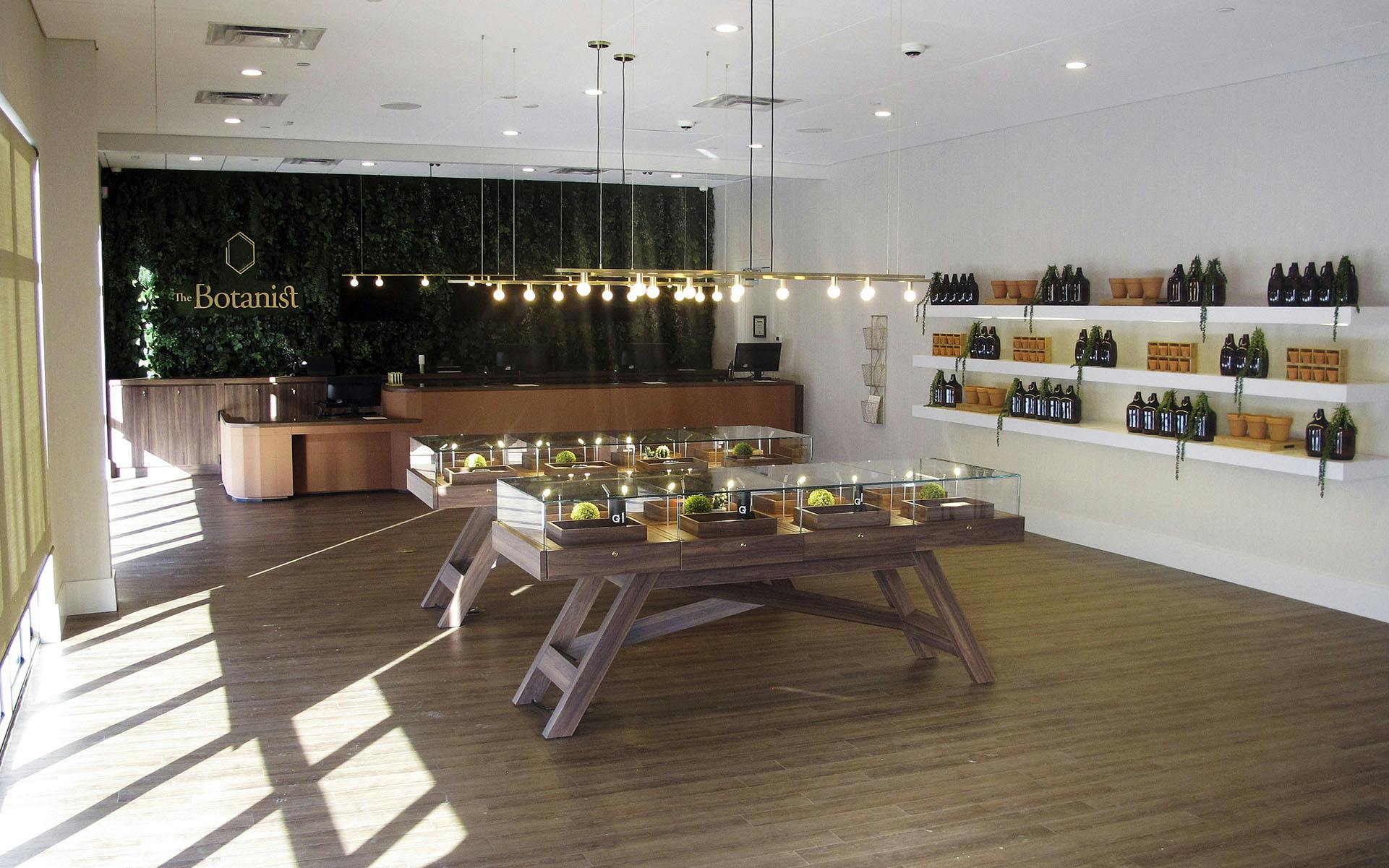Is marijuana legal in North Dakota?
Current legality status
medical
Cannabis is legal for qualified patients with a licensed card.
Medical marijuana is legal in North Dakota but recreational marijuana is not. Medical use is legal for registered patients, but there are laws that govern marijuana use.
North Dakotas voted on adult-use cannabis in the 2022 elections but it did not pass.
For those without a medical card, a first offense for possession is decriminalized, and while less than a half-ounce can land you a $1,000 fine, it won’t land you any jail time.
Pro-marijuana progress has been slow in the heavily red state, but there are positive factors. First-time offenders convicted of possession of less than an ounce can petition the court to seal records—that wouldn’t make the conviction go away, but it will block background checks and the offense won’t have to be listed on a job application. People with past convictions of marijuana or marijuana paraphernalia possession can also apply for pardons.
On the other hand, North Dakota’s Pardon Advisory Board meets only twice a year. Sale of any amount of marijuana is a felony with up to 10 years of imprisonment. Possession of hash is still a crime, with up to one year imprisonment.
Here is a list of possession penalties:
- Half an ounce or less: no incarceration, $1,000
- Half an ounce to 500 grams: Max 30 days, $1500
- 500 grams or more: Max one year, $3,000
North Dakota medical marijuana laws
Medical marijuana became legal in North Dakota in 2016, but didn’t become available until 2019. Possession of small amounts—less than half an ounce—of marijuana is decriminalized, a change that also happened in 2019. Instead of jail time, police can write what is essentially a ticket for up to $1,000.
More recently, pro-legalization efforts have stalled because of the COVID-19 pandemic. Legalize ND pushed for full, recreational legalization in 2018, and then tried again in 2019 with a new proposed initiative. But it has been difficult to get signatures during the pandemic and they did not meet the quota.
As things stand, registered medical marijuana patients are the only people legally allowed to possess or consume cannabis. Patients and registered caregivers can possess up to three ounces of dried flower marijuana. Their purchase limit is 2.5 ounces of dried flower and up to 4000mg THC total of other products.
Edibles are not legal in North Dakota.
North Dakota qualifying conditions for medical marijuana
North Dakota has a codified list of qualifying conditions for medical marijuana. Conditions must be defined as “debilitating,” and patients must be under the continued care of a healthcare provider. North Dakota does not permit edible forms of cannabis.
North Dakota’s qualifying conditions for the North Dakota Compassionate Care Act include:
- Cancer
- HIV/AIDS
- Hepatitis C (decompensated cirrhosis)
- Amyotrophic lateral sclerosis/Lou Gehrig’s disease
- Post-traumatic stress disorder (PTSD)
- Agitation of Alzheimer’s disease or related dementia
- Crohn’s disease
- Fibromyalgia
- Spinal stenosis or chronic back pain, including:
- Neuropathy or damage to the nervous tissue of the spinal cord with objective neurological indication of intractable spasticity
- Glaucoma
- Epilepsy
- A terminal illness
- A chronic or debilitating disease, medical condition, or its treatment that produces one or more of the following:
- Cachexia (wasting syndrome)
- Severe, debilitating pain that has not responded to previously prescribed medication or surgical measures for more than three months or for which other treatment options produced serious side effects
- Intractable nausea
- Seizures
- Severe or persistent muscle spasms, including but not limited to those characteristic of multiple sclerosis.
For more information, visit North Dakota’s Medical Marijuana site for patients.
How to get a medical marijuana card in North Dakota
North Dakota’s application for a medical marijuana card is entirely online. The requirements are fairly straightforward but the process does require some computer literacy, including creating an account and uploading two documents. The state recommends asking someone for help if you have trouble, and because the application is online, a helper may be out-of-state.
State provided instructions and video tutorials can be found here.
To qualify you must be a North Dakota resident with a state ID. The annual registration fee is $50.
Before applying:
- See your “bona fide” healthcare professional for an in-person medical evaluation—a “bona fide” provider is a healthcare profession who has reviewed the patient’s medical records, is overseeing care for the “debilitating” qualifying condition, and will continue to oversee the patient’s care.
- You do not need to get paperwork from your provider. When you apply, you will include contact information for your provider and the state will contact the provider for a written certification.
For your application you will need:
- A passport-style photo
- A copy of your North Dakota ID
- An email address
- Your provider’s name and email address
To apply:
- Create an account in order to apply for a registry identification
- Log in to your account and find the applications tab
- Select the appropriate application (patient, designated caregiver, provider)
- Complete the application
- Incomplete applications may be saved and completed at a later time
- You will need to upload your photo and a copy of your state ID
- You will need to enter your provider’s name and email address
- Applications will not be reviewed until they are complete
- Submit your application (you may check your application status at any time through your account)
- The state will now contact your provider
Patients under 19 are considered minors. The application process for minors includes the following requirements:
- The person responsible for making medical decisions for the minor must submit an application on behalf of the applicant
- A registered designated caregiver must purchase usable marijuana on the minor’s behalf
- A registered designated caregiver can be a parent, guardian, or other individual
- Refer to the ND Medical Marijuana Minor Patients page
For more information, read North Dakota’s patient application instructions.
Does North Dakota accept out-of-state medical cards?
No, North Dakota does not recognize medical marijuana cards from other states. If you move to North Dakota, you must get a state ID and complete the state application.
For more information, see North Dakota’s Patient Application FAQ.
When does my North Dakota medical marijuana card expire?
North Dakota medical marijuana cards expire one year after the issue date, unless otherwise specified by the prescribing health care provider on the written certification form.
North Dakota marijuana growing laws
Home cultivation is not allowed in North Dakota. It was originally included in the medical marijuana bill but then removed during legislative negotiating.
North Dakota public consumption laws
Marijuana is a controlled substance in North Dakota. It is medically legal, but public intoxication is not. Laws generally prohibit use near schools, public areas, parks, and treatment facilities.
Additionally, a patient is not allowed to possess or consume usable marijuana on a school bus, school van, school grounds (public or private), or at any location while a school sanctioned event is occurring.
In North Dakota, “no person may be prosecuted in any court solely for public intoxication,” according to state law codes. “Intoxication” is defined as a state in which an individual is under the influence of alcoholic beverages, drugs, and/or controlled substances.
A peace officer can take an apparently intoxicated person to their home, a hospital, a detox center, or—if the person poses a danger to herself or others—to jail. That person may not be jailed for more than 24 hours because of intoxication.
The important thing to notice in these regulations is that intoxication cannot be the sole charge.
North Dakota cannabis DUI laws
Driving while intoxicated is illegal everywhere. Medical marijuana is legal in North Dakota, but driving under its influence is not. “Intoxicated” is defined as “under the influence of any drug or substance or combination of drugs or substances to a degree which renders that person incapable of safely driving.”
The fact that any person has been legally entitled to use alcohol or other drugs is not a defense against any charge of driving under the influence—unless the marijuana that caused the intoxication was “used only as directed or cautioned by a practitioner who legally prescribed or dispensed the drug.”
North Dakota is an Implied Consent state, which means that by driving in the state a person has given consent to chemical breath, blood, and/or urine tests to determine the alcohol or drug content of the driver’s blood. A refusal to submit to such a test, though not sufficient to establish guilt, may be admissible as evidence in light of other factors.
Here are the penalties:
- First offense: Class B misdemeanor; a minimum fine of $500 and an order for addiction evaluation by an appropriate licensed addiction treatment program
- Second offense (within seven years): Class B misdemeanor; 10 days imprisonment (with at least 48 hours served consecutively); a fine of $1,500; an order for addiction evaluation; and participation in a “twenty-four seven sobriety program” for a year as a condition of probation. The court may convert jail time to community service.
- Third offense (within seven years): Class A misdemeanor; at least 120 days imprisonment; a fine of at least $2,000; an order for addiction evaluation; at least one year of probation; participation in a “twenty-four seven sobriety program” for a year as a condition of probation
- Fourth or subsequent offense (within 15 years): Class C felony; at least a year and a day’s imprisonment; a fine of at least $2,000; at least two years of probation; participation in a “twenty-four seven sobriety program” as a condition of probation
- Minor in the vehicle: Class A misdemeanor; at least 120 days imprisonment; a fine of at least $2,000; an order for addiction evaluation; at least one year of probation; participation in a “twenty-four seven sobriety program” for a year as a condition of probation
- License plates: On a second or subsequent offense within seven years, the court may order the license plates of all vehicles owned by the offender destroyed
For more information, please refer to N.D. Cent. Code Ann. § 39-08-01.
North Dakota cannabis testing regulations
The state’s first “compassion centers,” or dispensaries, opened in March 2019, more than two years after voters approved medical cannabis in 2016. Difficulties in establishing a regulatory structure accounted for a delay in contaminant testing of medical marijuana, and the first of two testing labs in North Dakota didn’t open until April 2019.
Marijuana manufacturing facilities are required to have all “usable marijuana” tested by a state designated laboratory before delivering it to a dispensary, at the manufacturer’s expense. The regulations go the other way as well—dispensaries cannot accept delivery of marijuana unless it has been tested and has passed compliance testing. This includes dried flower as well as concentrates.
Testing covers the usual list of substances—pesticide residue, microbial contaminants, solvents, heavy metals, etc. The full list can be found here. Labs are subject to demands for random testing from the North Dakota Department of Health at any time and at their own expense.
Common questions about marijuana legalization in North Dakota
Can medical patients grow in North Dakota?
Yes, medical patients can grow up to eight plants if they live 40 miles or more from a compassionate care center.
Is North Dakota a medical state?
Yes, medical marijuana is legal in North Dakota.
Is North Dakota a recreational state?
No, recreational use of marijuana is illegal in North Dakota.
Can you get a medical card for anxiety in North Dakota?
No, anxiety is not on the list of qualifying conditions.
What is a designated caregiver?
A designated caregiver is an individual who agrees to manage the well-being of a registered qualifying patient. A designated caregiver must be registered with the Division of Medical Marijuana. Patients do not have to designate a caregiver unless they are minors (under 19).
What forms of usable marijuana are available through the program?
- Dried leaves and flowers (requires a special authorization from the health care provider)
- Concentrates
- Tinctures
- Capsules
- Transdermal patches
- Topical
Are edibles available and/or legal?
No, edibles are illegal in North Dakota.
Can an employer test, fire, or otherwise take disciplinary action against someone for participating in the medical marijuana program?
Yes. Employers determine their drug policies and procedures that employees must follow. The Department of Health has no authority regarding employers’ drug policies.
Learn more about marijuana legalization in North Dakota
Keep up with the latest news about legalization in North Dakota
Stay current on North Dakota’s fast-changing laws by bookmarking Leafly politics and signing up for our newsletter.
Post last updated Sept. 7, 2020
By providing us with your email address, you agree to Leafly's Terms of Service and Privacy Policy.


